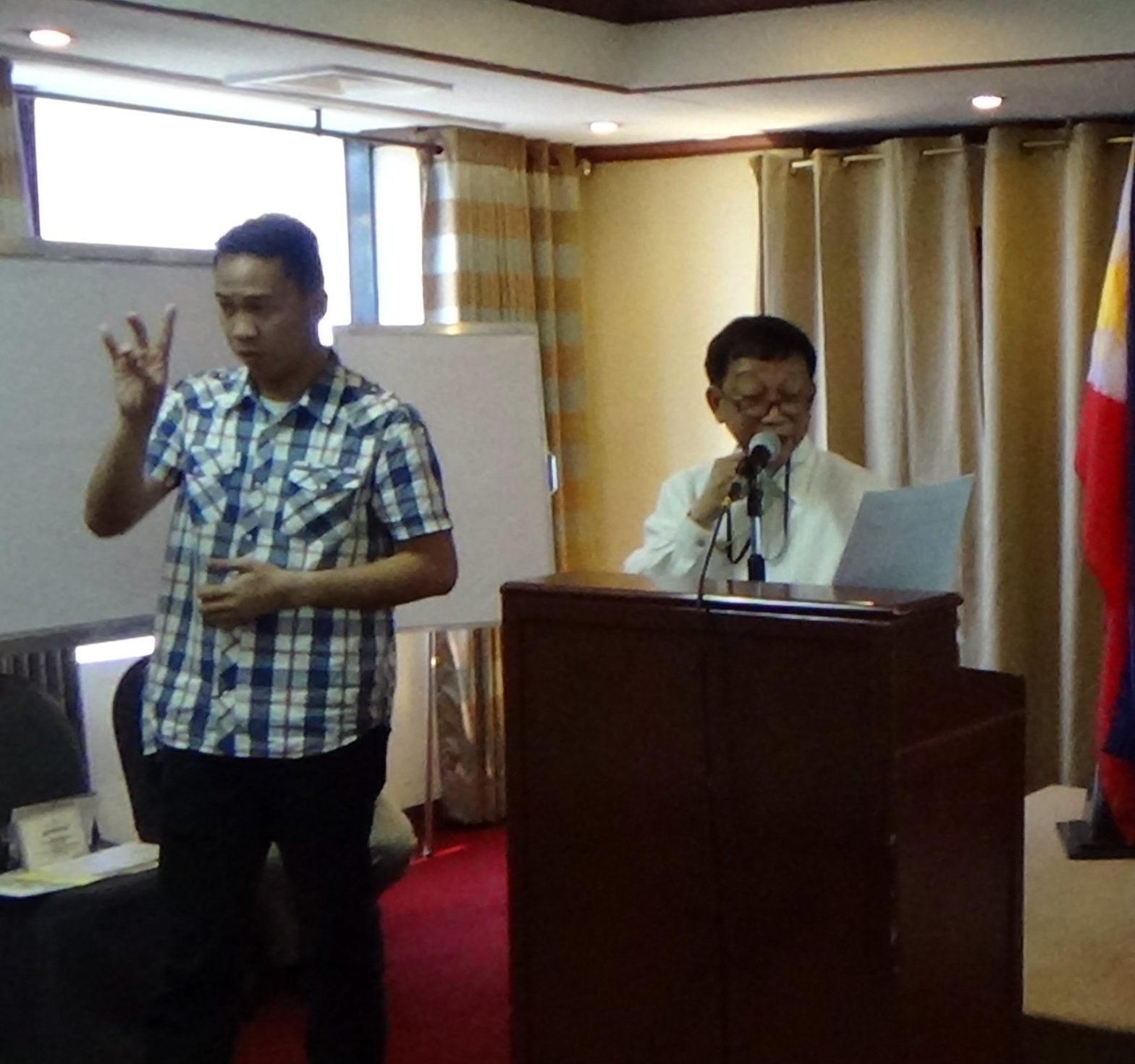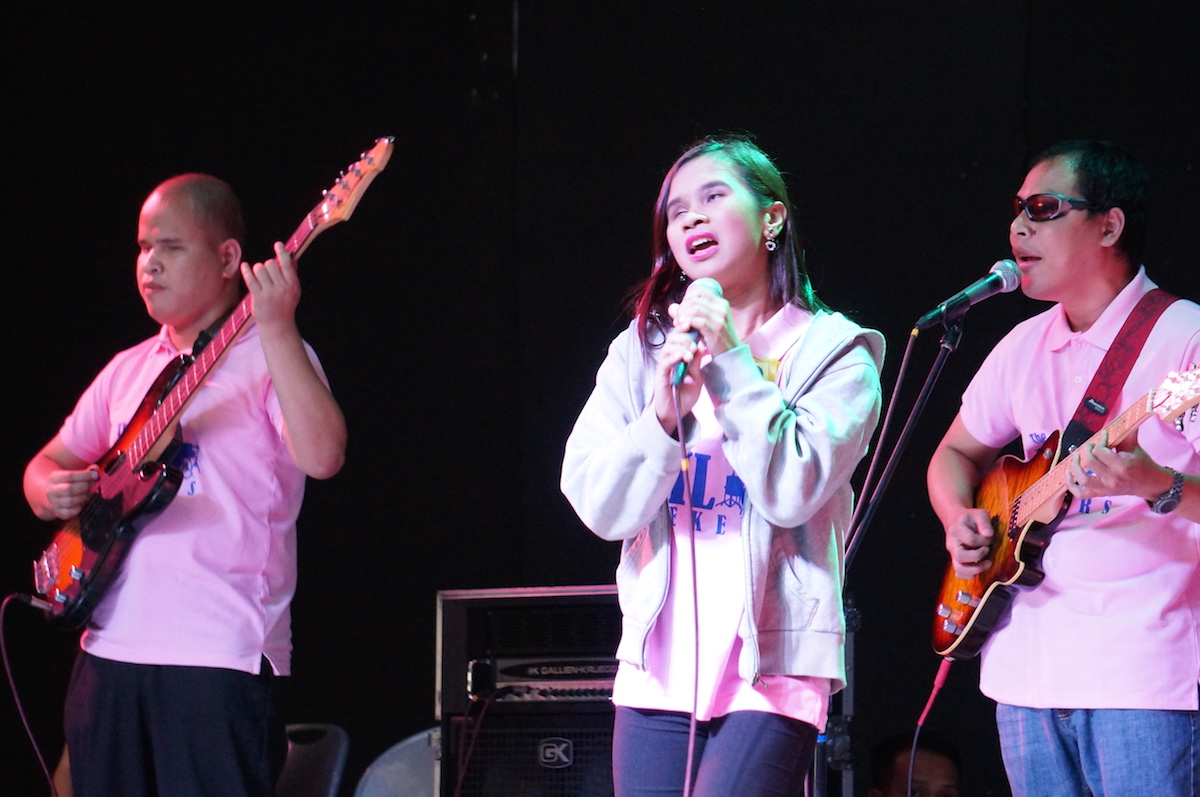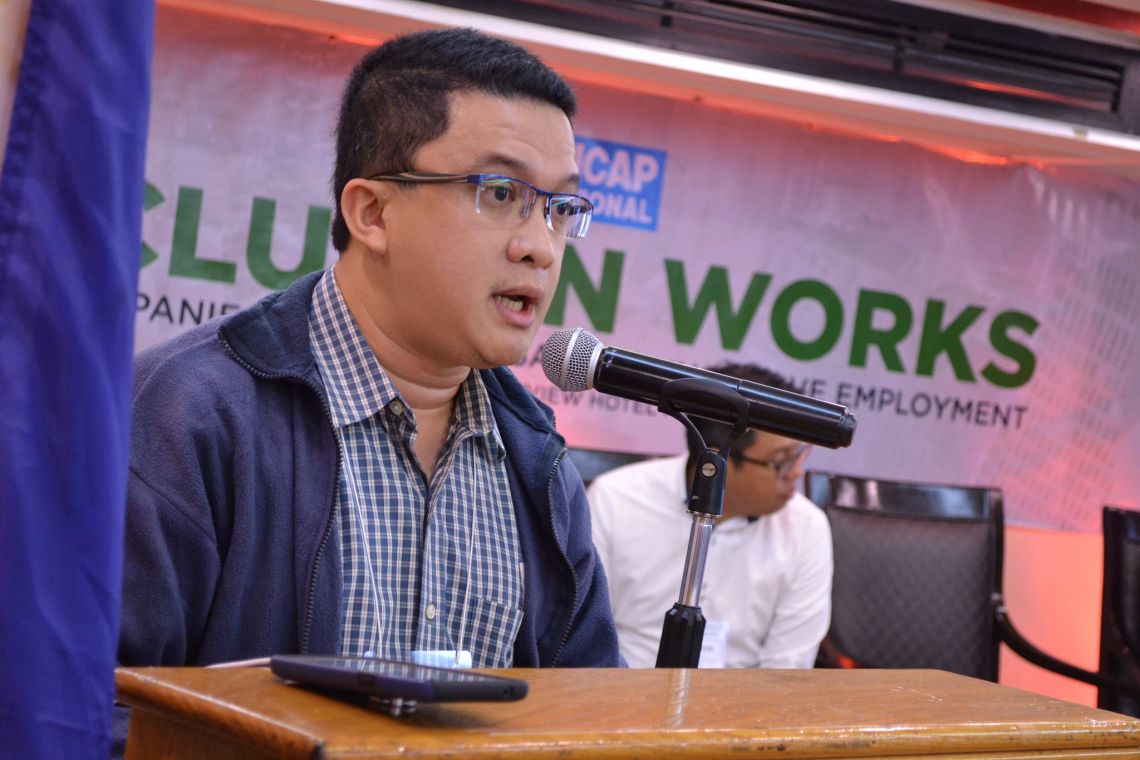Text and photos by JAKE SORIANO
PERSONS with disabilities (PWDs) are now guaranteed the best market for their products and services: the government.
The signing last year of the implementing rules and regulations of Executive Order 417 or the Economic Independence Program for PWDs, is key to providing sustainable livelihoods for PWDs, say advocates.
“PWDs are usually taught enough skills to engage in business, but we are left to compete in the regular market,” said Emer Rojas, the sector’s representative to the National Anti-Poverty Commission (NAPC), during last week’s forum on sustainable development for PWDs by the Alyansa ng may Kapansanang Pinoy (AKAP-Pinoy).
“Tinuturuan tayo ng kung ano-ano. Gumawa ng sabon, gumawa ng kandila… Eh kung hindi mabenta, anong gagawin natin sa kandila? Hintayin na lang natin, gamitin natin pagka-nakaburol tayo (We PWDs are taught soap-making or candle-making skills, but there is no stable market for these products. What do we do with unsold candles? Use them in our own wake)?”
A provision of the EO addresses this problem by mandating that government bodies procure 10 percent of their required goods and services from PWD cooperatives and organizations.
According to Rojas, the government as a ready market assures that PWD business ventures thrive regardless of changes in the economic environment.
“You are sure to sell your products and services, as long as you meet the standards,” he added.
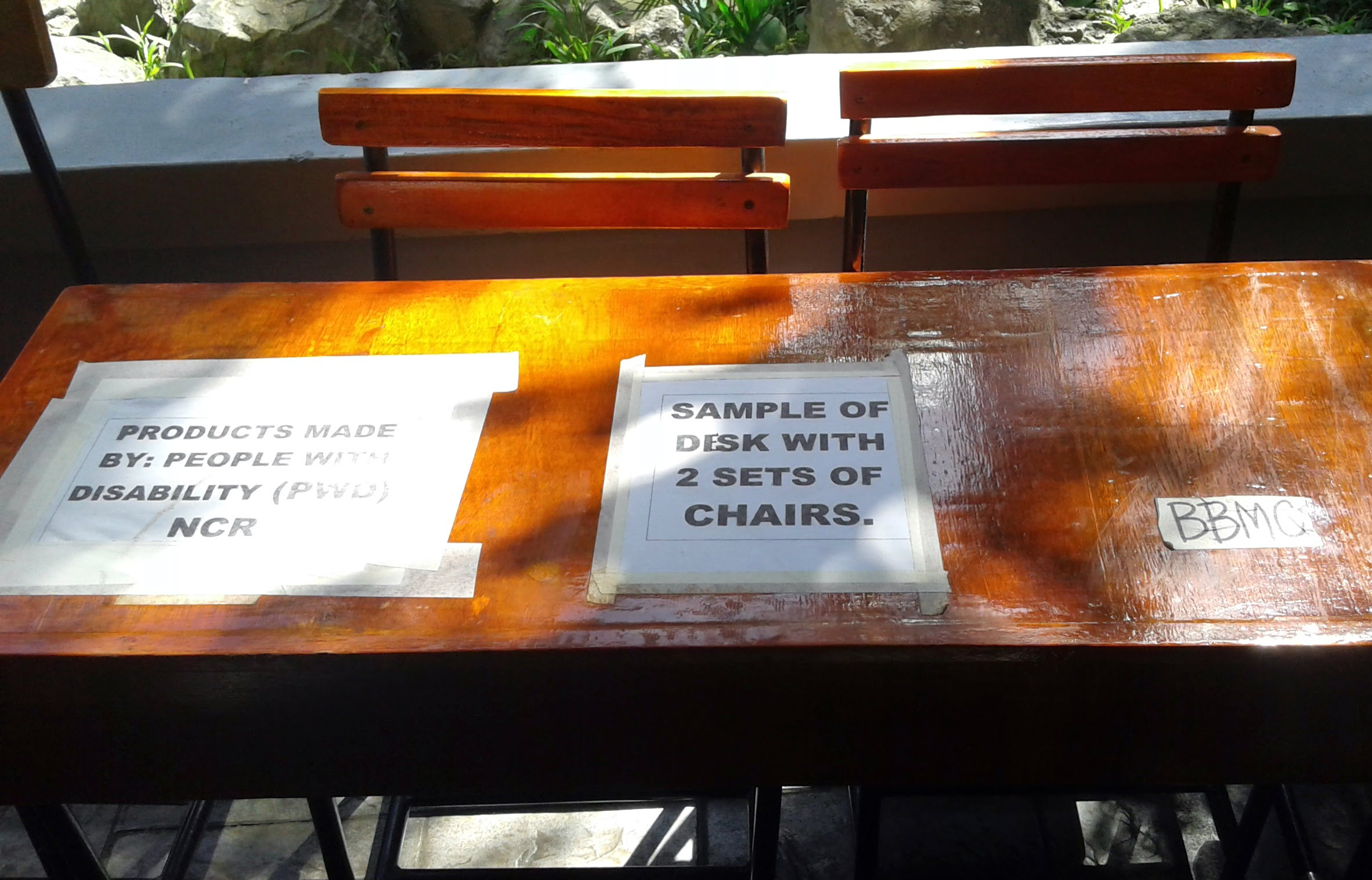
While encouraging PWDs to take full advantage of EO 417, Rojas cautioned the sector against abusing its provisions by being dummies for non-PWD entrepreneurs.
“Bawal po yung ahente (Being a middleman is not allowed),” he warned. “Kailangan produkto, finished product o service na kayo mismo ang gumawa (PWDs need to have services or finished products which they themselves made).”
Although signed in March 2005, EO 417 would not be ready for implementation until March 2014, almost a decade later, when its implementing guidelines were finally signed by then Health Secretary Enrique Ona, Social Welfare and Development Secretary Dinky Soliman, and NAPC’s Joel Rocamora.
The delay was due to disagreements on lending regulations by financial institutions and exemption requests to these by PWD groups, according to Rojas.
He added that the “bottom-up” budget scheme helped break the impasse by providing PWD groups with a mechanism to secure funds from the government itself.
Instituted during the 2013 budget process, the “bottom-up” approach aims to ensure that the needs of target poor municipalities are fully funded through local-level engagement of relevant government agencies with local government units, community leaders and civic organizations.
“That is a huge opportunity,” said Rojas, explaining that local PWD groups can get a minimum of half a million pesos for their projects.
He said that the sector now strives to move away from the welfare model. “We demand opportunities to be included in national development.”
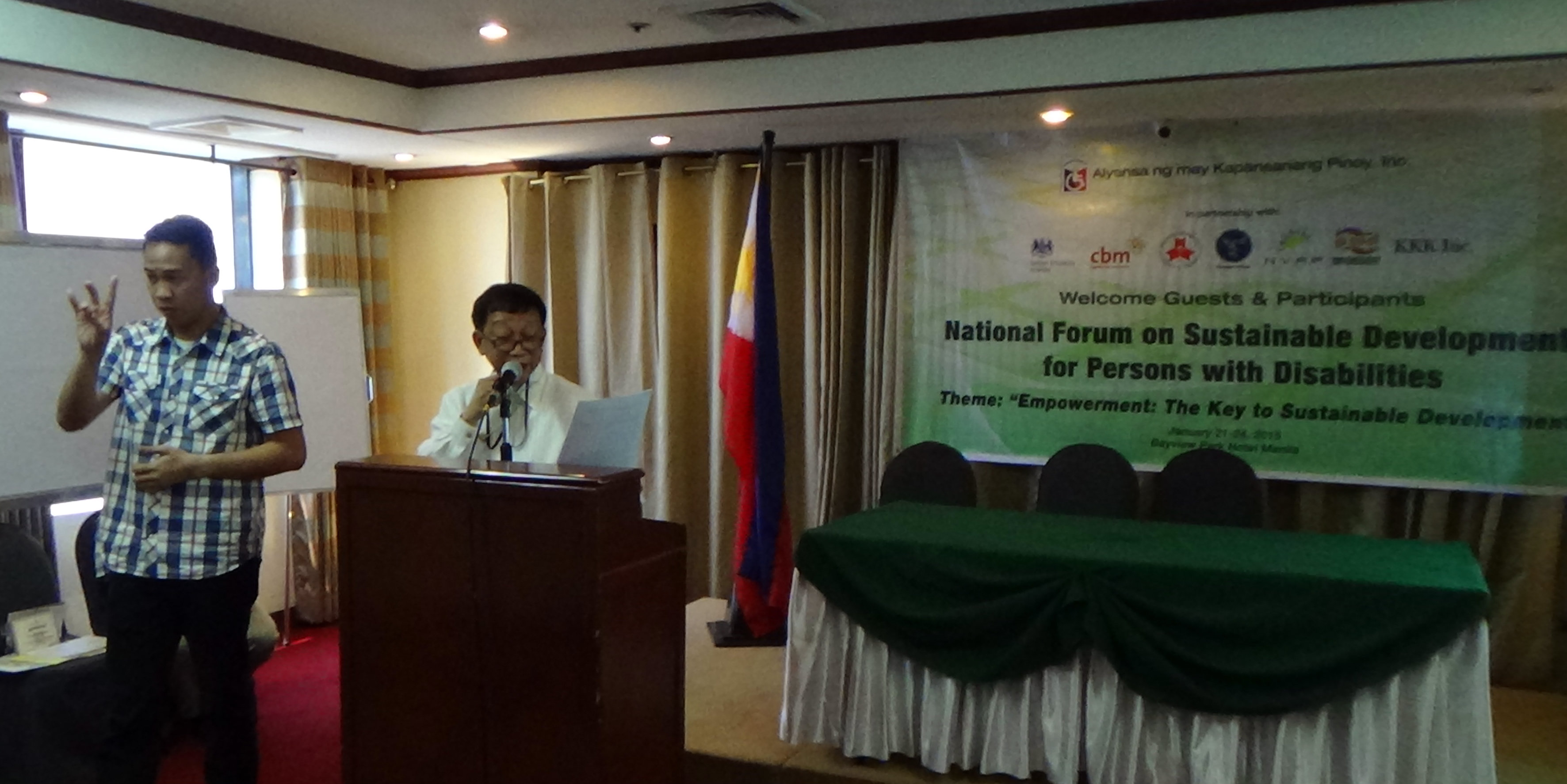
Economic opportunities for PWDs were also the highlight of the remarks of two other speakers during the AKAP-Pinoy forum.
British Embassy First Secretary and Head of the Political and Economic Team Steph Lysaght said there are more than just moral and legal arguments in calls to help the sector.
“There is a very strong economic argument for people to be focused on these issues,” Lysaght explained.
“No country can afford not to fully tap into that wealth of talent that is there.”
Senator Sonny Angara, also one of the speakers, vowed to support measures seeking tax benefits for PWDs, including a bill already passed in the House of Representatives seeking VAT exemption for the sector.
“It just so happens that the committee I chair is the Committee on Ways and Means which deals with taxes. So I think you have one friend and advocate for this measure in the Senate,” Angara said.
“We will be backing tax benefits for the PWD sector in whatever form or shape.”
